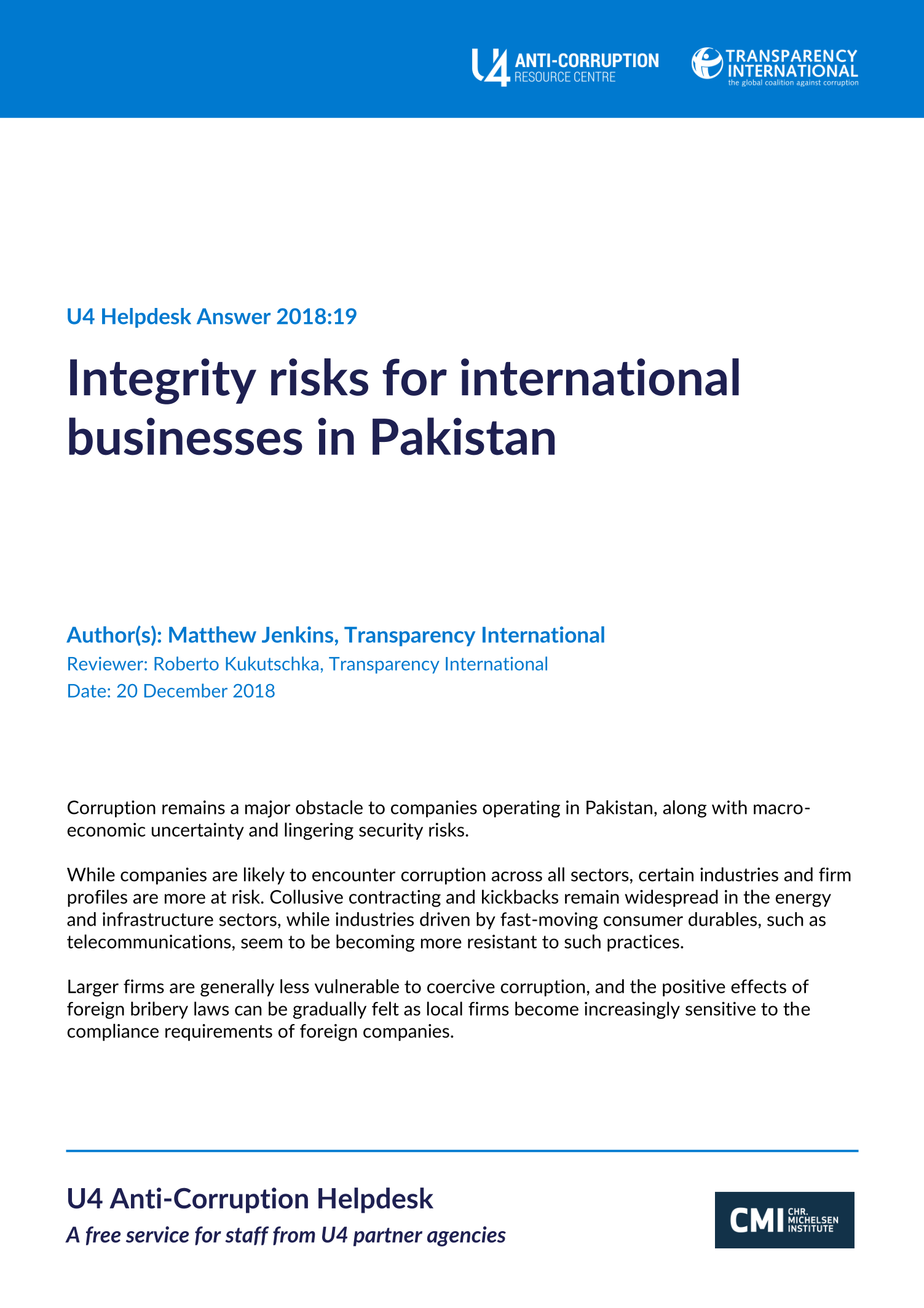Main points
- Pakistan is a sizeable trading partner for the United Kingdom, and offers opportunities for investment in infrastructure, telecommunications, natural resources and textiles.
- Firms view corruption as the most significant obstacle to business in the country, ahead of macro-economic uncertainty and lingering security concerns.
- Key areas of integrity risks include public procurement, political exposure, bureaucratic corruption and fraud.
- The forms of integrity risks vary significantly by firm profile, sector and the extent of interaction with government. Larger firms are generally less vulnerable to coercive corruption.


